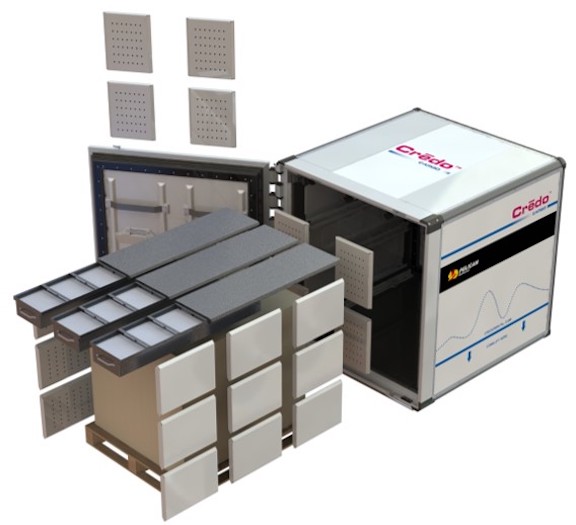Pelican BioThermal, the global name in temperature controlled packaging, announces deep frozen temperature controlled packaging options with temperature ranges of minus 80 degrees Celsius to minus 20 degrees Celsius. The new offerings help meet the growing need for increased deep frozen temperature ranges and payload capacities as pharmaceutical companies and their supply chains prepare to bring COVID-19 vaccines and therapeutics to market.
Pelican BioThermal has long offered its reusable Crēdo™ Cube in minus 20 degree and minus 50 degree Celsius temperatures. Through innovation and adaptation, many of the company’s product lines now include a variety of frozen options that cover temperatures of minus 20, minus 35, minus 50 and minus 80 degrees Celsius.

Product lines that offer deep frozen options include Crēdo™ Cube, CoolGuard™ Advance, CoolPal™ Flex, Sherpa Systems™, Crēdo™ Xtreme and Crēdo™ Cargo shippers. These lines include parcel and pallet sizes, as well as offer both single use and reusable temperature controlled shippers. Many of these expanded temperature ranges are also available through the Crēdo™ on Demand rental program.
“We know that pharmaceutical companies are in all phases of the development process for vaccines and therapeutics and working tirelessly to bring safe and effective drug products to market quickly,” said Greg Wheatley, Vice President of Worldwide New Product Development and Engineering at Pelican BioThermal. “Our engineering team matched this urgency to ensure they have the correct temperature controlled packaging to meet them where they’re at in drug development for the pandemic recovery, from discovery to distribution.”
Pelican BioThermal’s deep frozen products use phase change material (PCM) and dry ice systems to provide frozen payload protection with durations from 72 hours to 144+ hours. Payload capacities range from 1 to 96 liters for parcel shippers and 371 to 1,686 liters for pallet shippers.
New deep frozen solutions are ideal for short-term vaccine storage, redirect courier transport of vaccines from freezer farm hubs to immunization locations and daily vaccine replenishment to remote and rural areas.











